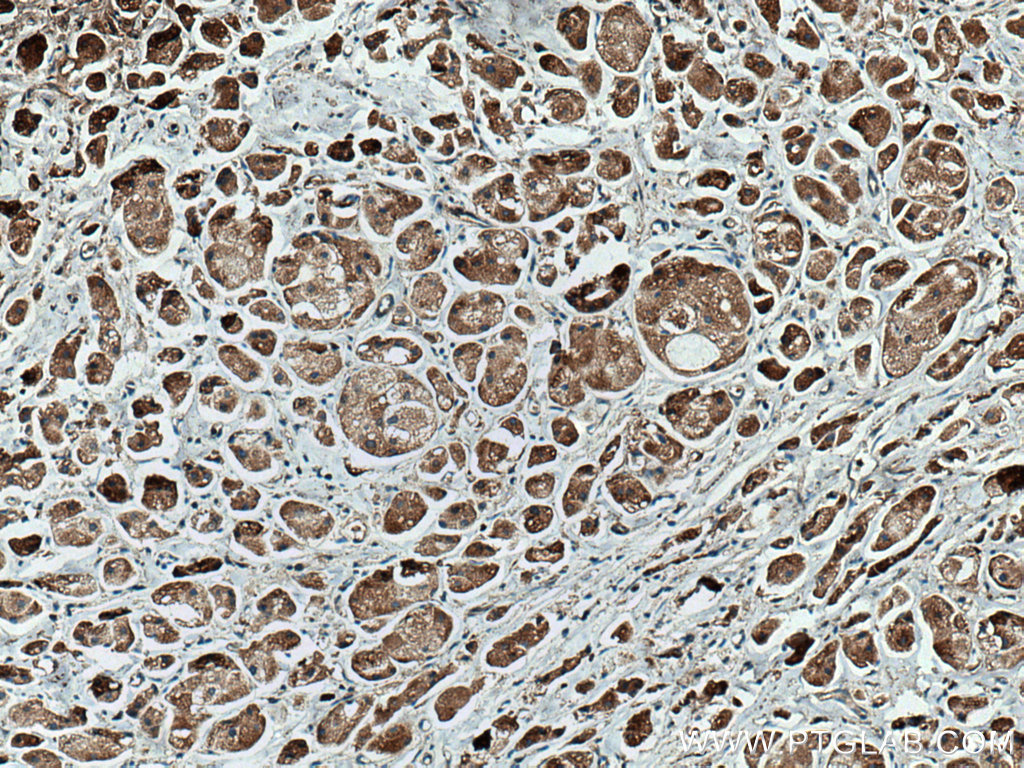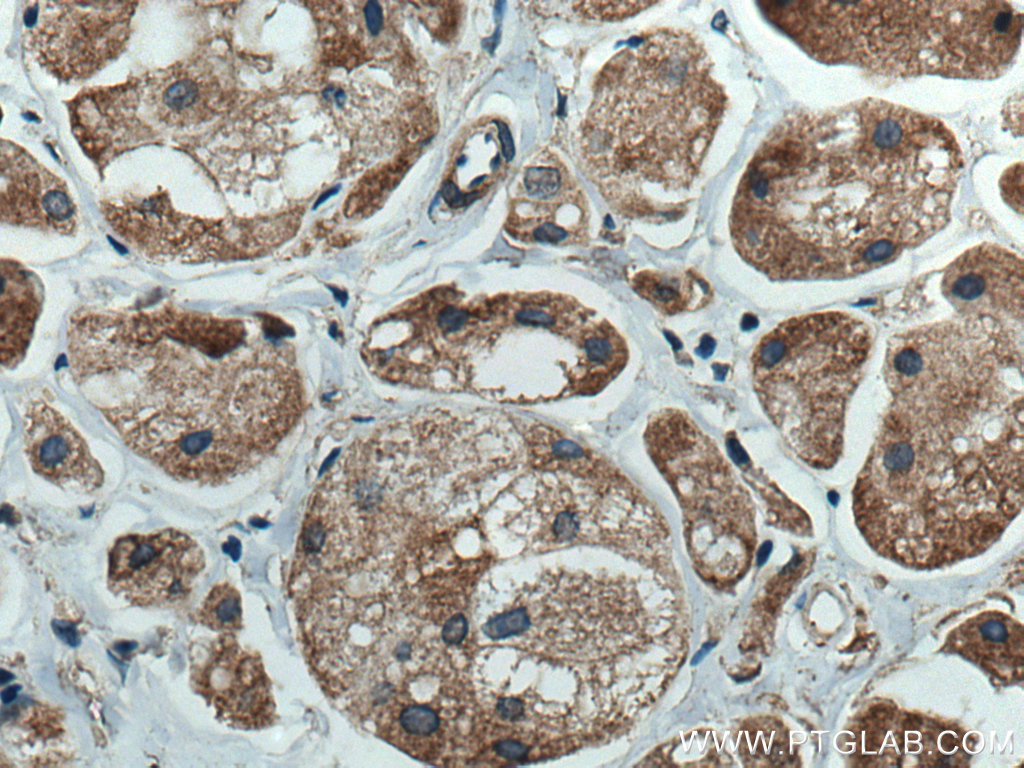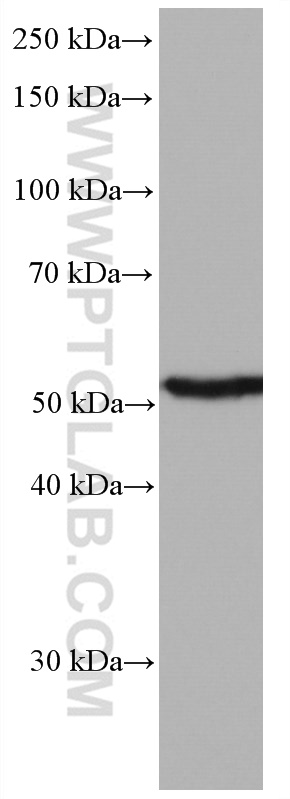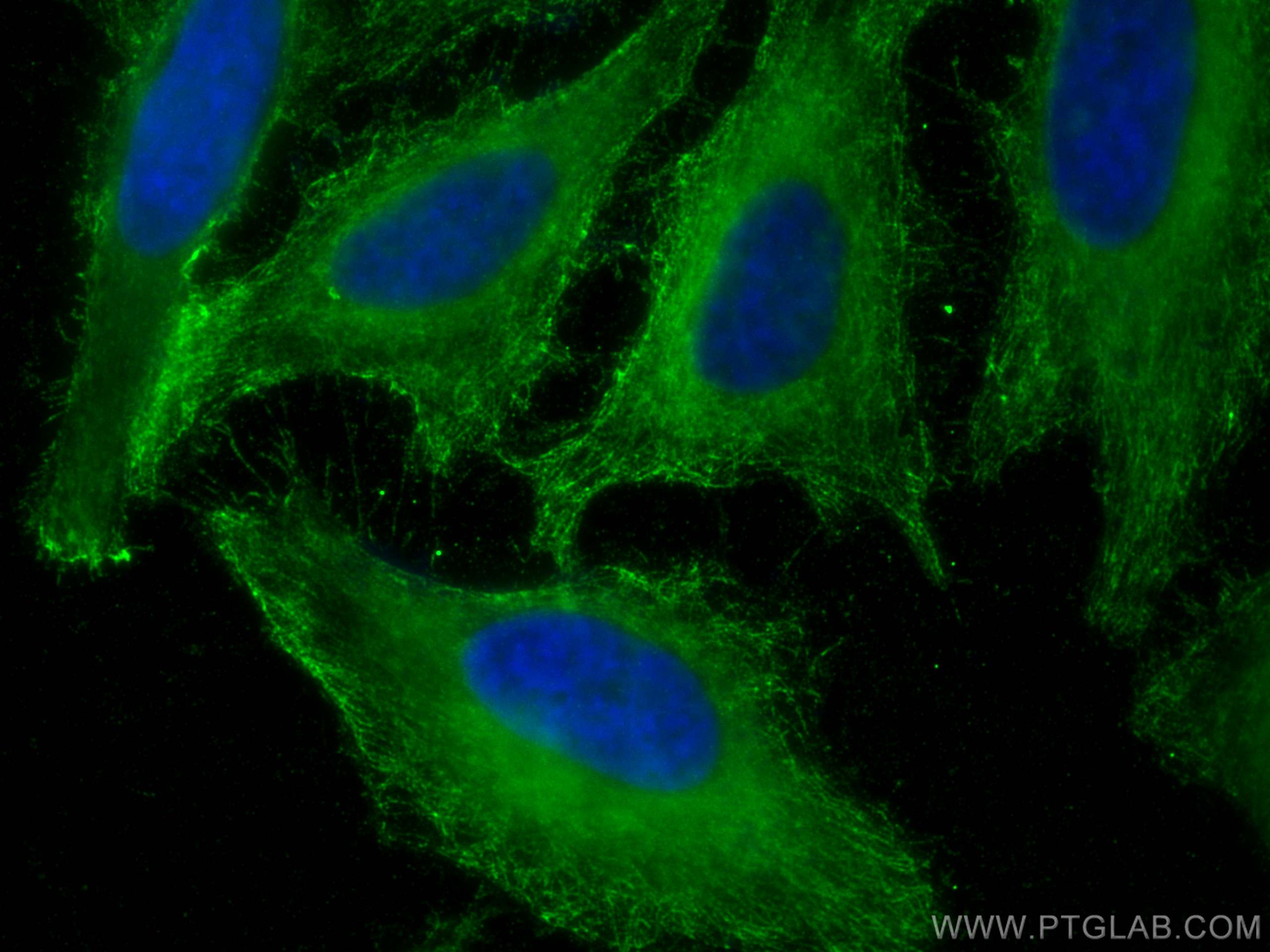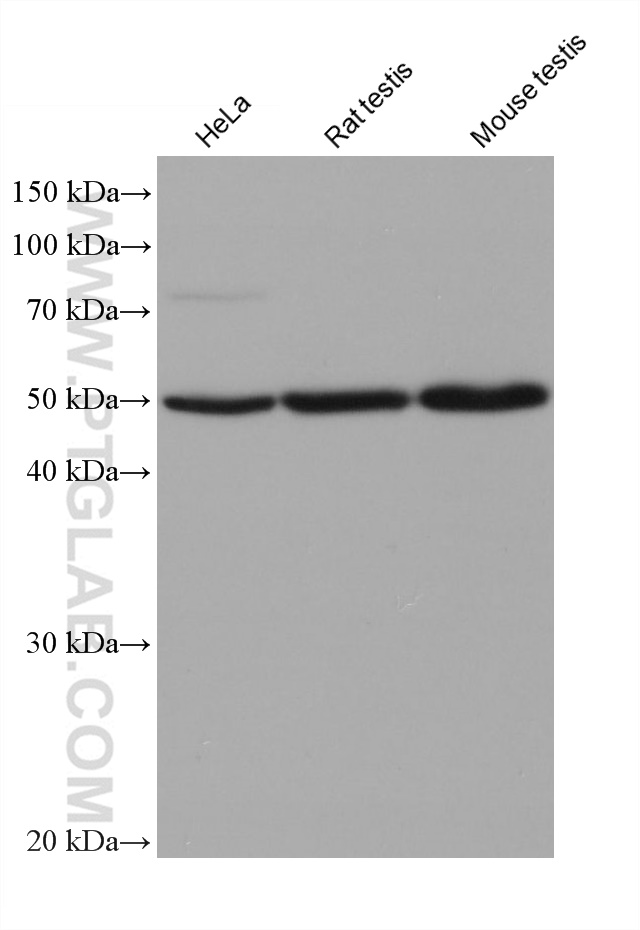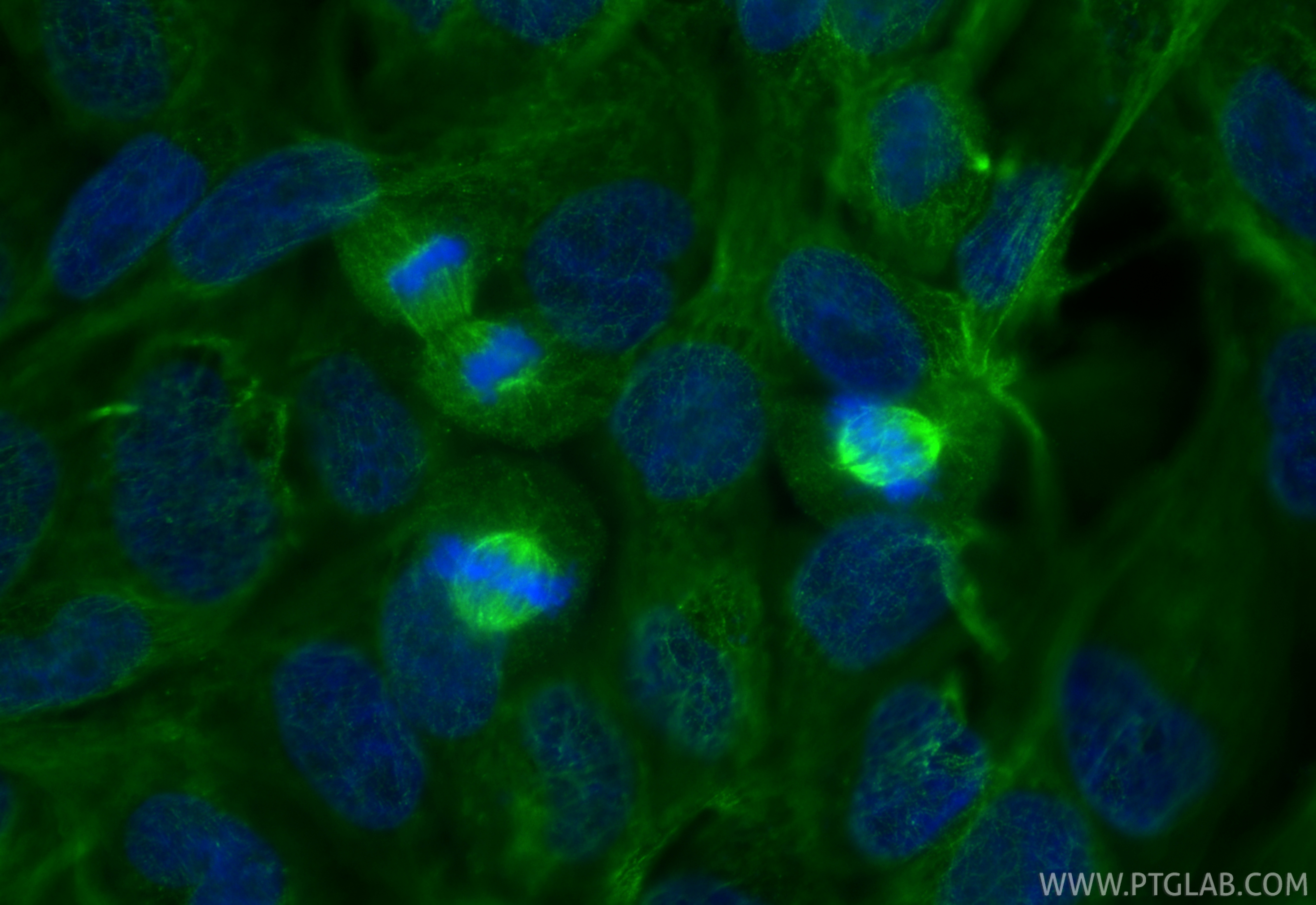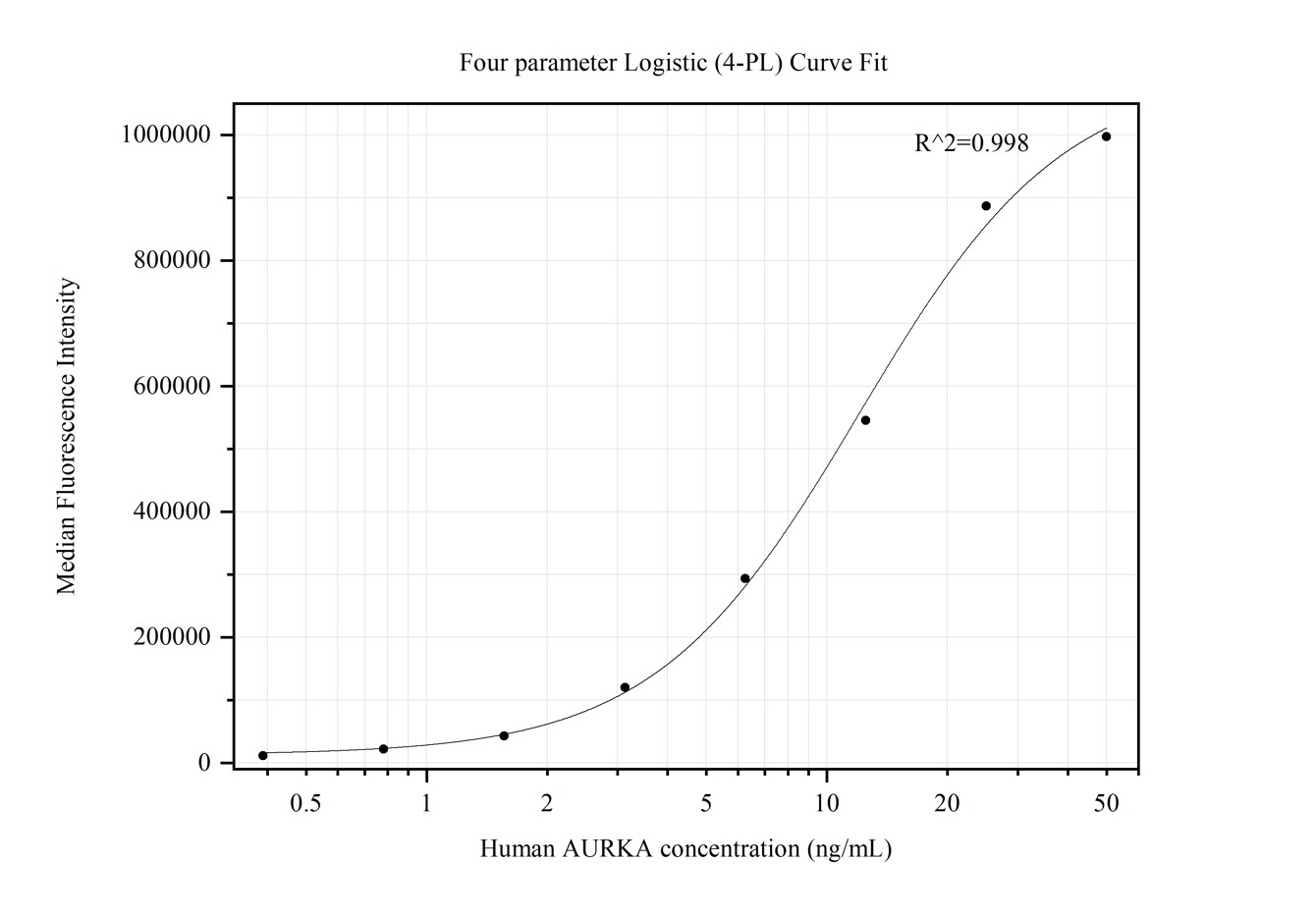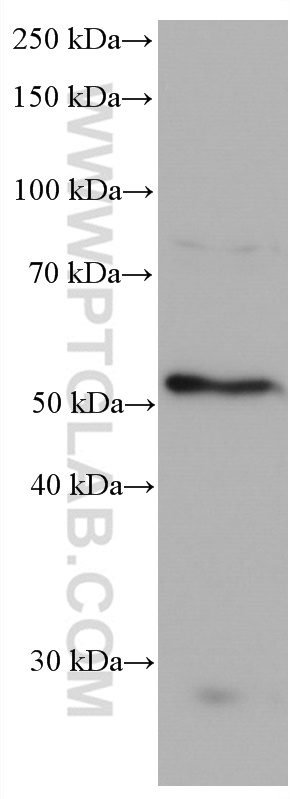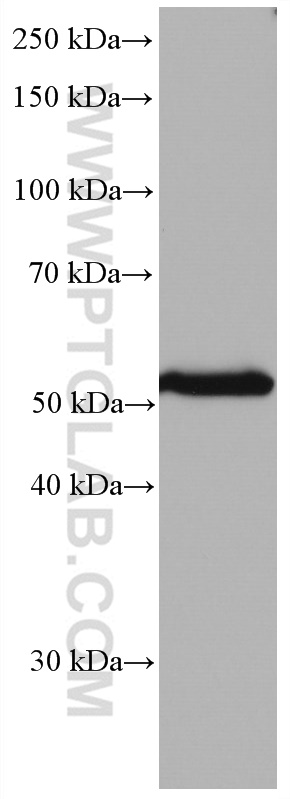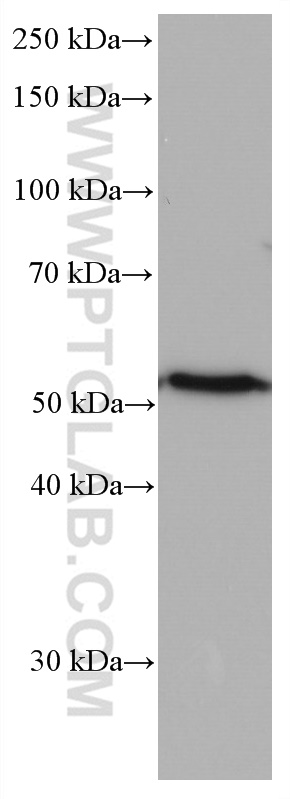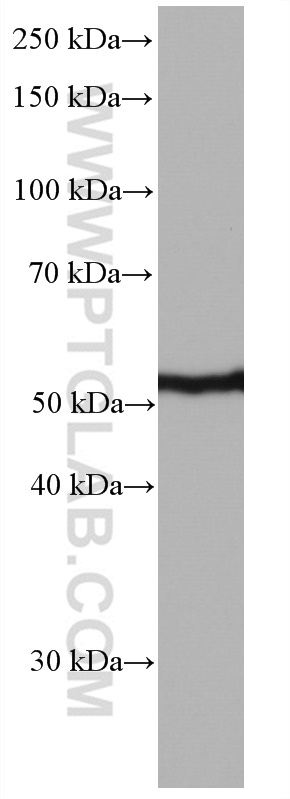验证数据展示
产品信息
66757-1-PBS targets AURKA as part of a matched antibody pair:
MP50265-1: 66757-2-PBS capture and 66757-1-PBS detection (validated in Cytometric bead array)
Unconjugated mouse monoclonal antibody pair in PBS only (BSA and azide free) storage buffer at a concentration of 1 mg/mL, ready for conjugation.
This conjugation ready format makes antibodies ideal for use in many applications including: ELISAs, multiplex assays requiring matched pairs, mass cytometry, and multiplex imaging applications.Antibody use should be optimized by the end user for each application and assay.
| 经测试应用 | WB, IHC, IF/ICC, Cytometric bead array, Indirect ELISA Application Description |
| 经测试反应性 | human, mouse, rat |
| 免疫原 |
CatNo: Ag20096 Product name: Recombinant human AURKA protein Source: e coli.-derived, PET28a Tag: 6*His Domain: 108-337 aa of BC002499 Sequence: NNPEEELASKQKNEESKKRQWALEDFEIGRPLGKGKFGNVYLAREKQSKFILALKVLFKAQLEKAGVEHQLRREVEIQSHLRHPNILRLYGYFHDATRVYLILEYAPLGTVYRELQKLSKFDEQRTATYITELANALSYCHSKRVIHRDIKPENLLLGSAGELKIADFGWSVHAPSSRRTTLCGTLDYLPPEMIEGRMHDEKVDLWSLGVLCYEFLVGKPPFEANTYQET 种属同源性预测 |
| 宿主/亚型 | Mouse / IgG3 |
| 抗体类别 | Monoclonal |
| 产品类型 | Antibody |
| 全称 | aurora kinase A |
| 别名 | Aurora A, 1F4B10, AIRK1, ARK-1, AURA |
| 计算分子量 | 46 kDa |
| 观测分子量 | 46-52 kDa |
| GenBank蛋白编号 | BC002499 |
| 基因名称 | AURKA |
| Gene ID (NCBI) | 6790 |
| RRID | AB_2882103 |
| 偶联类型 | Unconjugated |
| 形式 | Liquid |
| 纯化方式 | Protein A purification |
| UNIPROT ID | O14965 |
| 储存缓冲液 | PBS only, pH 7.3. |
| 储存条件 | Store at -80°C. The product is shipped with ice packs. Upon receipt, store it immediately at -80°C |
背景介绍
AURKA(Aurora kinase A), also named as STK6, STK15 or AIK, belongs to the Ser/Thr protein kinase family. This protein may play a role in cell cycle regulation during anaphase and/or telophase by being involved in microtubule formation and/or stabilization. Some recent evidence revealed that AURKA may also be implicated in tumor development and progression. AURKA is expressed highly in testis and various proliferating cells, migrating as a 46 kDa protein in SDS PAGE.Nuclear staining for AURKA is weak or nonexistent in normal tissue but strong in tumor tissue(PMID:19107951).

